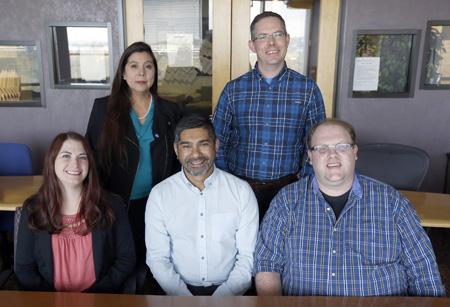
Credit: Photo by Steve Green
A team of Vanderbilt University Medical Center researchers, working with the U.S. Department of Veteran’s Affairs (VA), has discovered genetic associations with blood pressure that could guide future treatments for patients with hypertension.
The study, an international effort using data from sources including the VA Million Veteran Program (MVP) and United Kingdom (UK) Biobank, is published in the January issue of Nature Genetics.
MVP is a national effort by the U.S. Department of Veterans Affairs (VA) to collect blood samples and health information from one million veteran volunteers.
Researchers discovered over 250 new genetic variants, and also identified over 400 new genes associated with blood pressure through changes in gene expression. The findings also suggest that several existing drugs not currently used to treat high blood pressure could be used to potentially lower blood pressure.
“We’re redrawing the map of blood pressure genetics,” said Todd Edwards, PhD, associate professor of Medicine in the Vanderbilt University School of Medicine and one of two senior corresponding authors with Adriana Hung, MD, MPH.
While large swaths of the map remain to be filled in, the researchers said they are closer than ever to being able to improve the treatment of high blood pressure based on the patient’s genetic make-up.
“The door is wide open,” said Vanderbilt research fellow Jacob Keaton, PhD, whose identification of gene-drug interactions was a key part of the study. “We’re bringing findings to the table that we can do something with to have an impact on precision medicine.”
The study analyzed the relationship between genetic variants and blood pressure traits utilizing the electronic health records of more than 300,000 MVP participants and more than 140,000 UK Biobank study participants.
Thirty percent of the MVP participants were African-Americans, Hispanics, Asians and Native Americans — making it one of the most racially diverse genetic inquiries of its kind, said Hung, associate professor of Medicine in the Division of Nephrology and Hypertension.
Researchers replicated their findings by analyzing 17,000 samples from the Vanderbilt University biobank, BioVU, and 300,000 from large genetic consortia of blood pressure studies.
“Blood pressure is incredibly complicated,” Edwards said. “It may be that as we increase the sample size of these kinds of studies … we’ll discover that no place in the genome has a zero effect on a trait like blood pressure. It’s just that some of the effects are incredibly subtle.”
Much more needs to be learned.
Currently “we can’t accurately say what your blood pressure’s going to be at age 65 by looking at your genotype,” Edwards said, “but we might be able to tailor your treatment a little more accurately with some of the results we have from this study.”
###
Media Contact
Craig Boerner
[email protected]
615-322-4747
Related Journal Article
http://dx.




